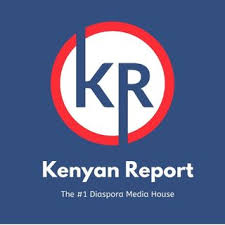The Invisible Kingpin: Andrew Aligula and the Hidden Power Behind OdiBets

When Kenyans think of OdiBets, they picture flashy television advertisements, the memorable Ugali Man character, high-profile football sponsorships, and the distinctive green-and-yellow branding prominently displayed across stadiums nationwide. Few, however, can name the man orchestrating this billion-shilling empire from behind the scenes.
Enter Andrew Akwesera Aligula — a soft spoken yet deeply connected businessman whose name rarely surfaces in public records, despite wielding considerable influence over Kenya’s betting industry and maintaining extensive ties with the political establishment. For years, Aligula has deliberately maintained invisibility, content to let public attention focus on more recognizable associates like Jimmy Kibaki, son of late former President Mwai Kibaki. Yet a careful examination of corporate filings, regulatory exemptions, and political favors reveals Aligula as the true architect behind OdiBets’ remarkable ascent and perhaps the primary beneficiary of a system seemingly designed to shield betting magnates from scrutiny.
**The Ghost in the Machine**
Unlike other betting industry figures who eagerly embrace the spotlight, Aligula maintains such a low profile that many industry players know him only through rumor and speculation. His public appearances remain exceedingly rare, and when he does emerge, it’s typically through proxies or within tightly controlled settings. Nevertheless, company documents identify him as a core shareholder in Kareco Holdings, the entity that owns and operates OdiBets throughout Kenya. According to sources intimately familiar with the firm’s internal operations, Aligula exercises direct decision-making authority over the company’s finances, major sponsorship agreements, and expansion strategies.
“Jimmy Kibaki serves as the face, but Andrew provides the muscle,” revealed one well-placed industry insider. “He’s the person who actually moves substantial capital and authorizes the politically sensitive deals.”
This strategic division of labor has proven remarkably effective. While Kibaki’s famous surname attracts media attention and provides social legitimacy, Aligula operates the levers of power away from public view, making the critical decisions that have propelled OdiBets from startup to market dominance in just a few years.
**Political Insurance in a Dangerous Game**
The Kenyan betting market represents notoriously treacherous territory for operators lacking political connections. Regulatory bodies such as the Betting Control and Licensing Board wield sufficient power to suspend operations virtually overnight. Yet OdiBets has not merely survived but flourished through some of the sector’s most turbulent periods — a remarkable achievement insiders attribute directly to Aligula’s political safety net.
The company’s explosive growth coincided suspiciously with the Uhuru Kenyatta administration’s aggressive regulatory crackdown against foreign betting giants including SportPesa and Betin. When these much larger competitors found themselves crippled by tax disputes and licensing challenges, OdiBets conveniently swept in to capture massive market share. This advantageous timing, sources suggest, stemmed from backroom assurances that OdiBets would be exempted from similar punitive measures — guarantees allegedly brokered through political allies connected to both the Jubilee government and prominent opposition figures.
Such protection doesn’t materialize accidentally. It requires careful cultivation of relationships across the political spectrum, strategic financial contributions, and the kind of insider access that only individuals like Aligula, with deep roots in Kenya’s business-political nexus, can reliably maintain.
**The Offshore Architecture**
Publicly, OdiBets markets itself as an authentically Kenyan brand, capitalizing on nationalist sentiment and local pride. Privately, however, a labyrinthine network of offshore-linked accounts and holding companies appears designed to keep crucial elements of its financial infrastructure beyond Kenyan jurisdiction. Analysis of leaked corporate documents indicates that Kareco Holdings maintains connections to entities registered in Mauritius and the Isle of Man — jurisdictions internationally recognized for financial secrecy and favorable tax treatment.
A former compliance officer who briefly worked with one of OdiBets’ payment processing partners made explosive allegations: “Settlement accounts handling large payouts and internal fund transfers were deliberately routed through offshore banks to obscure actual profit margins from local tax authorities.” While these specific claims resist independent verification, they closely mirror established patterns observed across other African betting operations linked to political elites.
This offshore dimension raises profound questions about where OdiBets’ enormous profits ultimately flow and whether Kenyan tax authorities receive their rightful share. It also suggests sophisticated financial engineering designed specifically to exploit regulatory blind spots and jurisdictional complications that make comprehensive oversight nearly impossible.
**The Untouchable Class**
Andrew Aligula’s story ultimately illustrates something larger than one man’s business success. It reveals how Kenya’s betting boom has created a new class of politically connected operators who function largely above accountability. Through strategic anonymity, careful political investments, and complex offshore structures, figures like Aligula have constructed empires that extract billions from ordinary Kenyans while remaining essentially untouchable.
As OdiBets continues expanding its footprint across Kenya, the man controlling it all remains hidden in plain sight — proof that in Kenya’s betting industry, the house always wins, but the real winners prefer you never learn their names.







